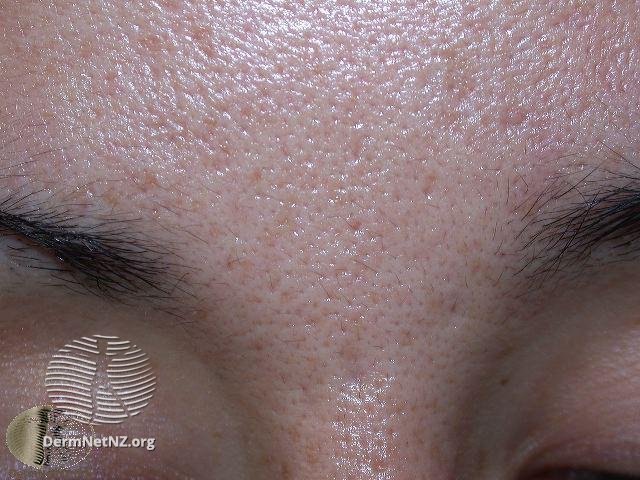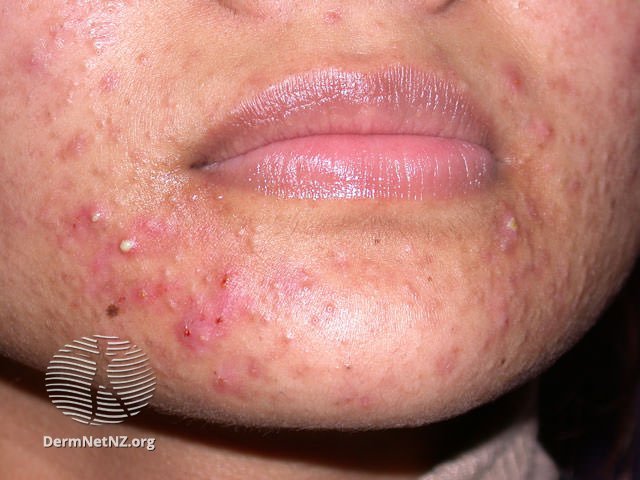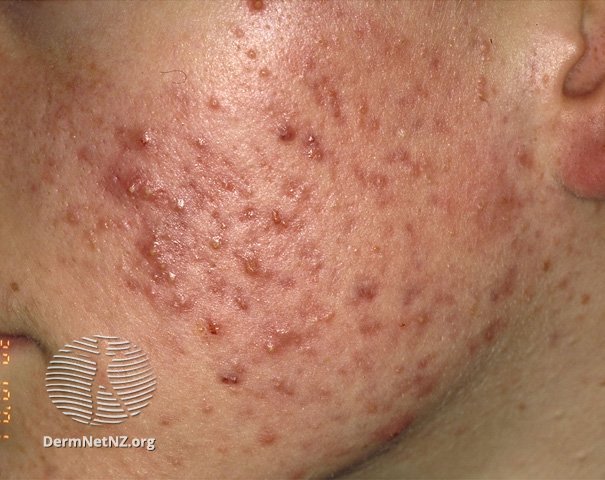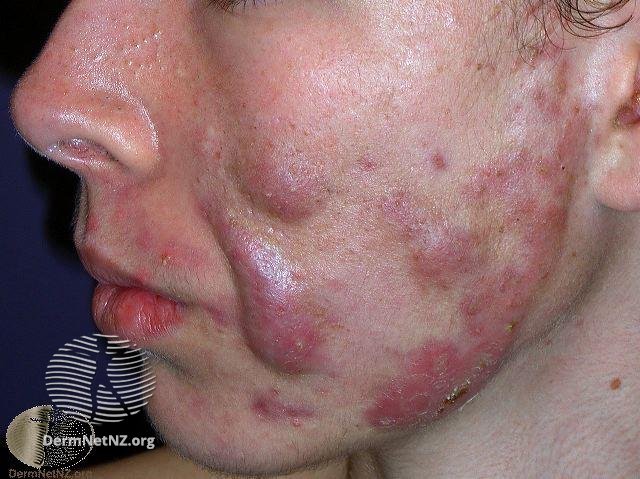Acne & Scarring
Overview
Acne is a skin condition that causes blemishes including blackheads, whiteheads, papules, pustules (pimples), cysts and nodules to develop. Acne is the most common skin disorder in North America, affecting an estimated 85 percent of adolescents. It can be a chronic condition that may affect many people from their teenage years well into adult life. Acne can appear on the face, back, chest, neck, shoulders, upper arms and buttocks.
0% all adolescents
0% adults over 25
Acne can also result in dark spots on the skin or permanent scars. The dark spots on the skin appear when the acne heals. It can take months or years for dark spots to disappear. Scars may form in people who get cysts and nodules as the acne clears. You can prevent these scars if you get treatment early. Acne symptoms can also cause low self-esteem and depression.
Causes
- Hormonal changes
- Hormonal changes during adolescence cause the sebaceous glands to become enlarged, and sebum production increases. In most people with acne, hormone levels are normal, but the sebaceous glands are highly sensitive to the hormones.
- Acne tends to resolve between ages 30 to 40, although it can persist into or develop for the first time during adulthood. Post-adolescent acne predominantly affects women, in contrast to adolescent acne, which predominantly affects men. Acne can flare before a woman's menstrual period, especially in women older than 30 years.
- Diet
- The role of diet in acne is controversial. Some studies have found weak associations between cow's milk and an increased risk of acne, perhaps because of hormones that occur naturally in milk. However, there is no strong evidence that milk, high-fat foods, or chocolate increase the risk of acne.
- Stress
- Psychological stress can probably worsen acne. In several studies of students, acne severity appeared to worsen during times of increased stress
- External Factors
- Oil-based cosmetics may contribute to the development of acne. Oils and greases in hair products can also worsen skin lesions. Water-based or "noncomedogenic" products are less likely to worsen acne.
- People with acne often use soaps and astringents. While these treatments remove sebum from the skin surface, they do not decrease sebum production. Frequent or aggressive scrubbing with these agents can actually worsen acne.
Severity
Treatment
There is no single best treatment for acne, and combinations of treatments are sometimes recommended. Since acne lesions take at least eight weeks to mature, you should use a treatment for a minimum of two to three months before deciding if the treatment is effective.
Skin Care
- Cleansers
- Wash your face no more than twice daily using a gentle nonsoap facial skin cleanser (eg, Cetaphil, Oil of Olay bar or foaming face wash, or Dove bar) and warm (not hot) water. Some providers recommend avoiding use of a washcloth or loofah, and instead using the hands to wash the face. Vigorous washing or scrubbing can worsen acne and damage the skin's surface.
- Do not pick or squeeze pimples because this may worsen acne and cause skin swelling and scarring. It can also cause lesions to become infected.
- Try some deep pore cleansing with our EltaMD Facial Cleanser
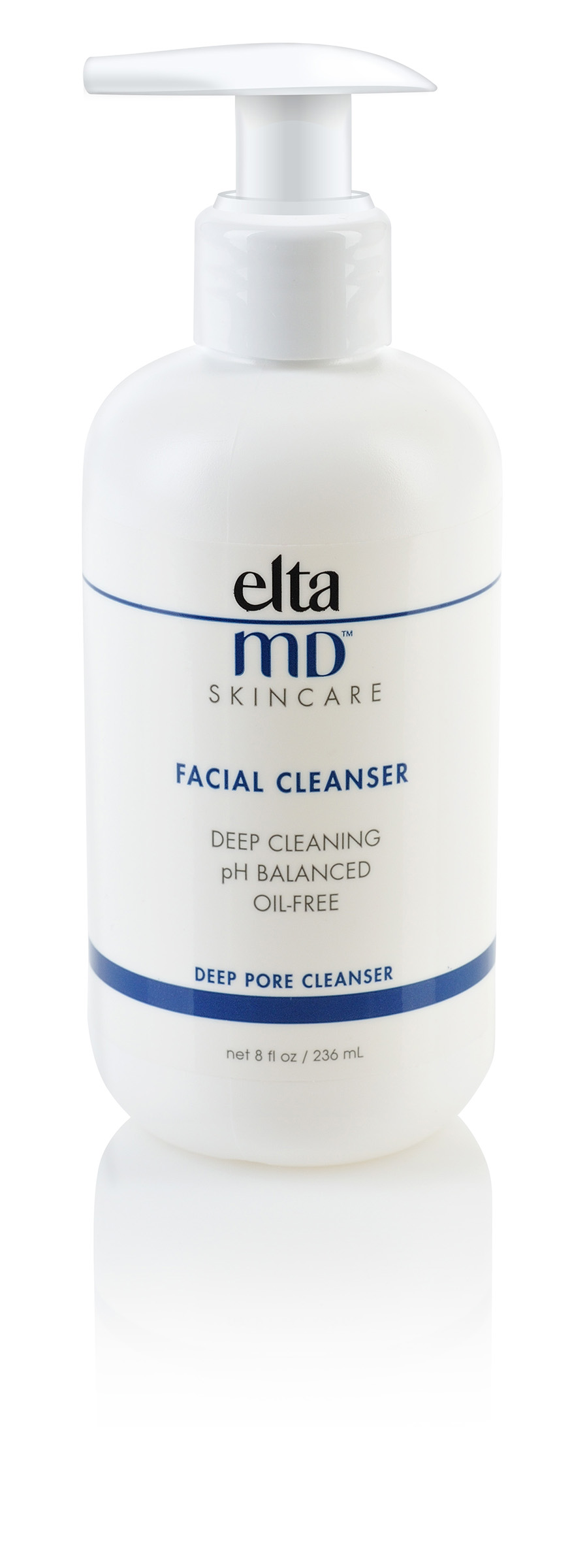
- Moisturizers
- Use of a moisturizer minimizes dryness and skin peeling, which are common side effects of some acne treatments. Moisturizers that are labeled as "noncomedogenic" are less likely to block skin pores.
- Hydrate your face with our EltaMD AM Therapy Moisturizer
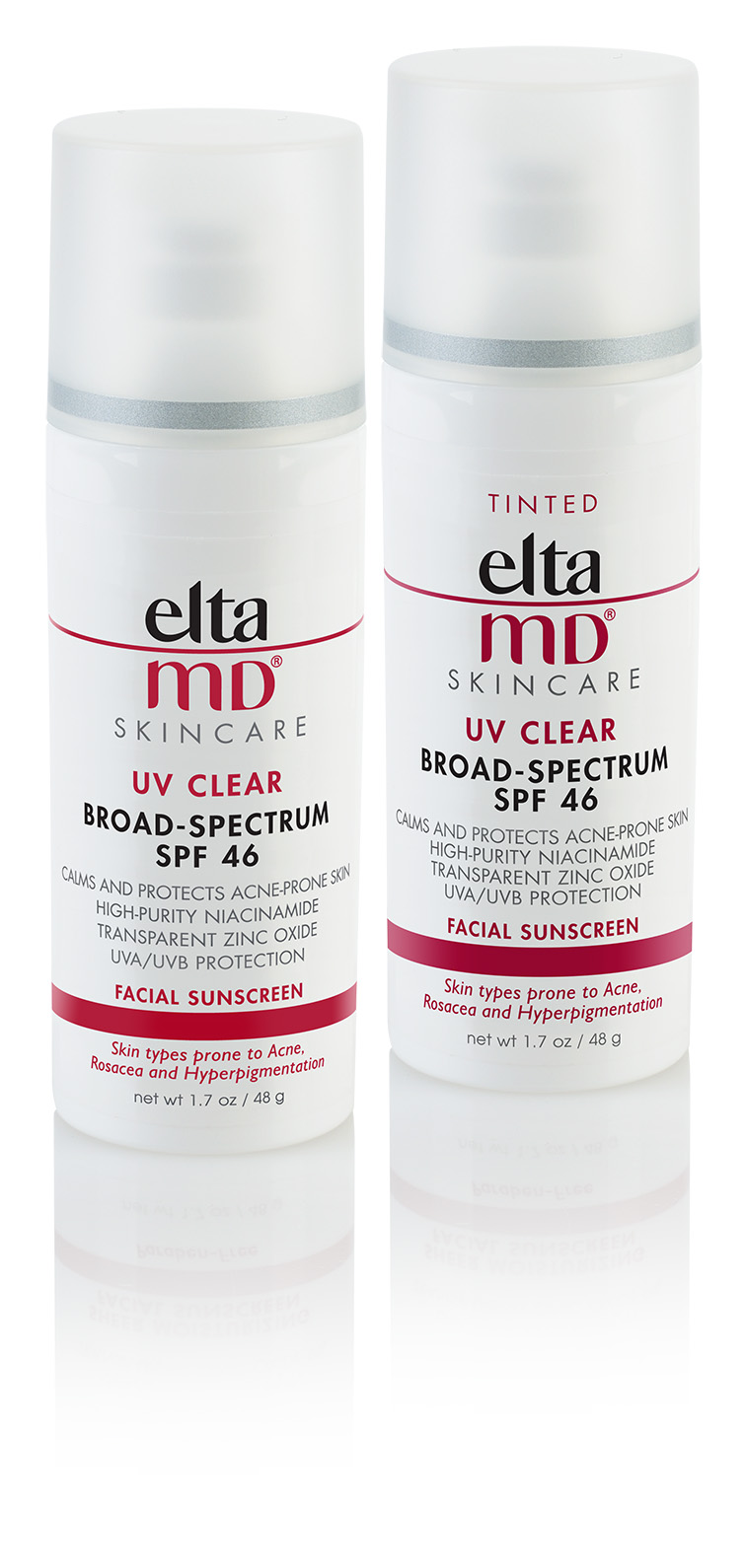
- Sun Protection
- Some acne treatments increase the skin's sensitivity to sunlight (eg, retinoids, doxycycline). To minimize skin damage from the sun, avoid excessive sun exposure and use a sunscreen with SPF 30 or higher that is broad spectrum (blocks both UVA and UVB light) before sun exposure.
- Protect your skin from harmful UV rays with our EltaMD Sunscreens
Medications
- Topical retinoids
- Topical retinoid medications are often recommended for noninflammatory acne. Retinoids are usually applied once per day, although people who develop skin irritation can reduce this to every other day or less, then increase as tolerated over time. Most people become more tolerant of retinoids over time. While using topical retinoids, you should apply a sunscreen with SPF 30 or greater before sun exposure.
- Topical acids
- Beta-hydroxy acids including salicylic acid have been shown to reduce inflammation by targeting the oil production of the face. Several studies demonstrate its effectiveness especially when combined with other agents.
- Alpha-hydroxy acids including glycolic and lactic acids have been shown to help with post-acne skin discoloration and helps with cell renewal and exfoliation.
- Hormone therapy (women only)
- The hormone estrogen can help to offset the effect of androgens (hormones responsible for acne development). Estrogen treatment in the form of a birth control pill is sometimes recommended for women with moderate or severe acne. Not all estrogens are recommended for the treatment of acne and some can make it worse.
- Spironolactone is another medication that can be used to treat acne. Spironolactone is a diuretic that reduces the effects of androgens.
- Topical benzoyl peroxide
- Benzoyl peroxide is usually may be combined with a topical retinoid, in which case the benzoyl peroxide is applied in the morning and the retinoid is applied at night. Benzoyl peroxide can irritate the skin, sometimes causing redness and skin flaking, and it can bleach clothing, towels, bedding, and hair.
- Topical antibiotics
- Topical antibiotics control the growth of acne bacteria and reduce inflammation. Topical antibiotics include erythromycin, clindamycin, sulfacetamide, and dapsone.
- Oral antibiotics
- Oral antibiotics work to slow the growth of acne-producing bacteria. However, oral antibiotics can have bothersome side effects, including vaginal yeast infections in women and stomach upset. Doxycycline and minocycline are the most commonly prescribed oral antibiotics for acne. They cannot be used during pregnancy or in children less than nine years of age.
- Oral isotretinoin
- Oral isotretinoin is a potent retinoid medication that is extremely effective in the treatment of severe acne. It cures or significantly improves acne in the majority of patients.
- Oral isotretinoin is usually taken in pill form once or twice daily with food for 20 weeks, then stopped. In some cases, acne can initially worsen before it improves. To reduce the risk for this initial flare of acne, isotretinoin is sometimes given at a lower dose for the first month of treatment. After treatment is stopped, improvement can continue for up to five months.
- Despite its positive effects, oral isotretinoin can have serious side effects and should be used with caution. Taking isotretinoin during pregnancy can cause miscarriage and life-threatening malformations in the baby. For these reasons, there are strict rules in the United States for healthcare providers, pharmacists, and patients regarding the use and prescription of oral isotretinoin.
Aesthetics
With aesthetic and laser treatments, we can quickly and more aggressively reduce acne, oily skin, pore size, lighten pigment, and improve your skin’s overall texture.
- Chemical Peels For the reduction of acne or with discoloration. Recommended for all skin types.
- Cryoslush & Acetone Supercooled acetone with glycolic acid to give you that glow.
- Intralesional Kenalog To calm down active acne cysts or that stubborn zit before a big event.
- Medical Grade Products To take care of your skin and prolong effects of treatments at home.
Laser Therapy
- DyeVL/IPL Photofacial To inhibit surface bacteria and/or damages the sebaceous glands. Not recommended for all skin types.
Scarring
With aesthetic and laser treatments, we can reduce the appearance of unsightly scars and blemishes left from inadequetely treated acne.
- Dermal Fillers Used to restore volume, improve contour, fill depressions and smoothen lines.
- Microneedling Used to treat scars, stretch marks, textural issues and produce more collagen.
- TCA CROSS for large pores and "ice-pick" scars with high concentration TCA.
